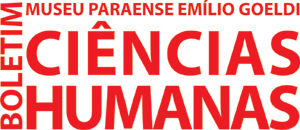N
Etnoespécies
Abreviação
Nome científico
Frequência (%)
Ranque
Índice de Smith (S)
Categorias de uso
1
Traíra
Tr
Hoplias malabaricus (Bloch, 1794)
94
3,83
0,807
A, I, M
2
Tucunaré
Tu
Cichla sp.
87
3,22
0,781
A
3
Cachara
Ch
Pseudoplatystoma fasciatum (Linnaeus, 1766)
68
5,71
0,532
A
4
Caravaçu
Cç
Astronotus ocellatus (Agassiz, 1831)
81
9,16
0,505
A, I
5
Cará
Cr
Satanoperca pappaterra (Heckel, 1840)
77
9,21
0,481
A, I, Aq
6
Matrinchã
Mt
Brycon cephalus (Günther, 1869)
68
6,90
0,479
A
7
Pacu
Pc
Piaractus brachypomus (G. Cuvier, 1818)
68
9,38
0,400
A
8
Pintado
Pd
Pseudoplatystoma corruscans (Spix & Agassiz, 1829)
55
8,00
0,384
A
9
Bagre
Br
Pimelodus sp.
58
9,06
0,380
A, I, M
10
Tambaqui
Tb
Colossoma macropomum (Cuvier, 1818)
52
8,06
0,361
A
11
Piranha-vermelha
Ph
Pygocentrus nattereri (Kner, 1860)
65
11,15
0,351
A, I
12
Pacupeva
Pv
Mylossoma aureum (Spix & Agassiz, 1829)
68
11,52
0,342
A
13
Lambari
Lb
Astianax sp.
58
11,44
0,314
A, I
14
Piau-três-pintas
Pt
Leporinus freiderici (Bloch, 1794)
65
13,75
0,284
A, I
15
Jatuarana
Jt
Brycon melanopterus (Cope, 1872)
32
7,10
0,238
A
16
Piranha-preta
Pp
Serrasalmus rhombeus (Linnaeus, 1766)
52
13,88
0,231
A, I
17
Arraia
Ar
Potamotrygon falkneri (Castex & Maciel, 1963)
45
12,14
0,229
A, M, Aq
18
Jaú
Ju
Zungaro zungaro (Humboldt & Valenciennes, 1821)
39
9,75
0,229
A
19
Caparari
Cp
Pseudoplatystoma tigrinum (Valenciennes, 1840)
39
10,75
0,221
A
20
Corvina
Cv
Plagioscion squamosissimus (Heckel, 1840)
52
13,0
0,217
A, I
21
Curimbatá
Co
Prochilodus nigricans (Spix & Agassiz, 1829)
45
14,21
0,204
A, I
22
Piauçu
Pç
Leporinus macrocephalus (Garavello & Britski, 1988)
52
14,50
0,200
A
23
Cachorra-facão
Cf
Hydrolycus scomberoides (G. Cuvier, 1819)
45
14,36
0,197
A
24
Peixe-novo
Pn
Pellona castelnaeana (Valenciennes, 1847)
48
14,60
0,181
A
25
Peixe-elétrico
Pe
Electrophoridae eletricus (Linnaeus, 1766)
55
16,59
0,177
M
26
Palmito
Pl
Ageneiosus brevifilis (Valenciennes, 1840)
39
13,67
0,173
A
27
Jiju
Jj
Erythrinus erythrinus (Bloch & Schneider, 1801)
32
13,80
0,160
A, I
28
Muçum
Mç
Synbranchus marmoratus (Bloch, 1795)
42
14,62
0,152
I
29
Guenza
Gz
Crenicichla lepidota (Heckel, 1840)
29
13,78
0,145
A, I
30
Cardinal
Cd
Paracheirodon axelrodi (Schultz, 1956)
39
15,17
0,144
Aq
31
Piapara
Pb
Schyzodon borelli (Boulenger, 1900)
35
13,70
0,139
A, I
32
Pirarara
Pi
Phractocephalus hemioliopterus (Bloch & Schneider, 1801)
32
14,45
0,139
A
33
Abotoado
Ab
Oxydoras niger (Valenciennes, 1821)
35
14,91
0,138
A, I
34
Cará-boi
Cb
Geophagus proximus (Calstenau, 1855)
35
14,73
0,137
A, I
35
Gorro
Gr
Liposarcus multiradiatus (Hancock, 1828)
32
16,80
0,119
A
36
Camboatá
Ct
Hoplosternum littorale (Hancock, 1828)
29
13,78
0,116
I
37
Piau-onça
Po
Leporinus fasciatus (Bloch, 1794)
29
15,44
0,115
A, I, Aq
38
Piranha-amarela
Pm
Serrasalmus maculatus (Kner, 1858)
29
15,78
0,101
A, I
39
Bagre-sapo
Bs
Trachelyopterus teaguei (Devincenzi, 1942)
19
14,33
0,086
A, I, M
40
Saicanga
Sg
Acestrorrynchus sp.
32
19,10
0,079
A, I
41
Sauá
Sh
Tetragonopterus argenteus (Cuvier, 1816)
29
16,89
0,077
A, I
42
Cará-bandeira
Bd
Pterophyllum scalare (Schultze, 1823)
13
14,25
0,055
Aq
43
Tuvira
Tv
Sternopygus macrurus (Bloch & Schneider, 1801)
29
21,22
0,053
I
44
Cachorra
Ca
Acestrorhynchus falcatus (Bloch, 1794)
13
16,50
0,052
A
45
Sardinha
Sr
Triportheus angulares (Spix & Agassiz, 1829)
39
19,58
0,048
A, I
46
Peixe-agulha
Pa
Loricaria sp.
19
21,17
0,047
I, Aq
47
Sucuri
Su
Eunetes sp.
3
23,00
0,001
A, M
Total/Média:
21.000

 Mapa: Joari C. Arruda (2017).
Mapa: Joari C. Arruda (2017).



